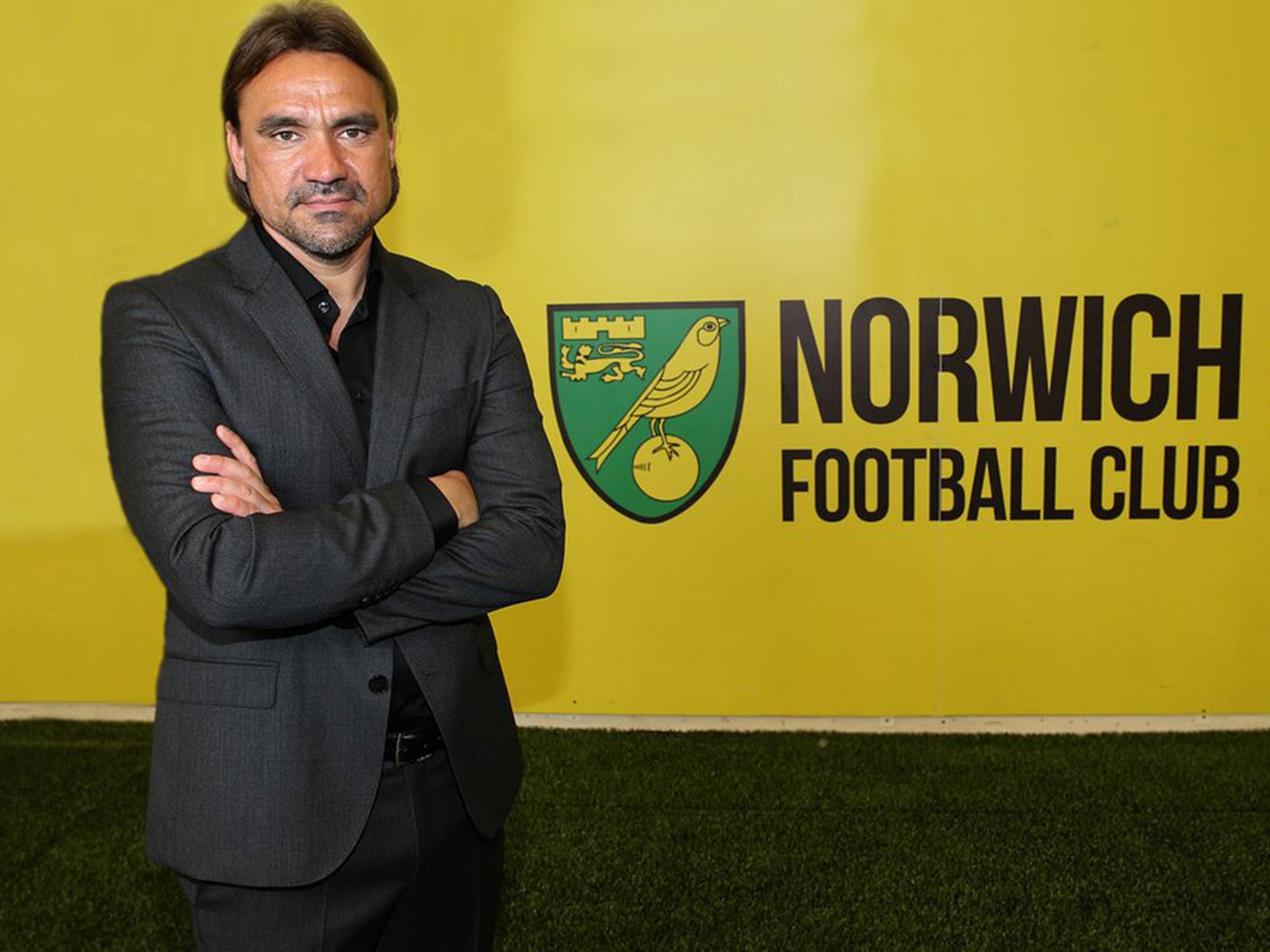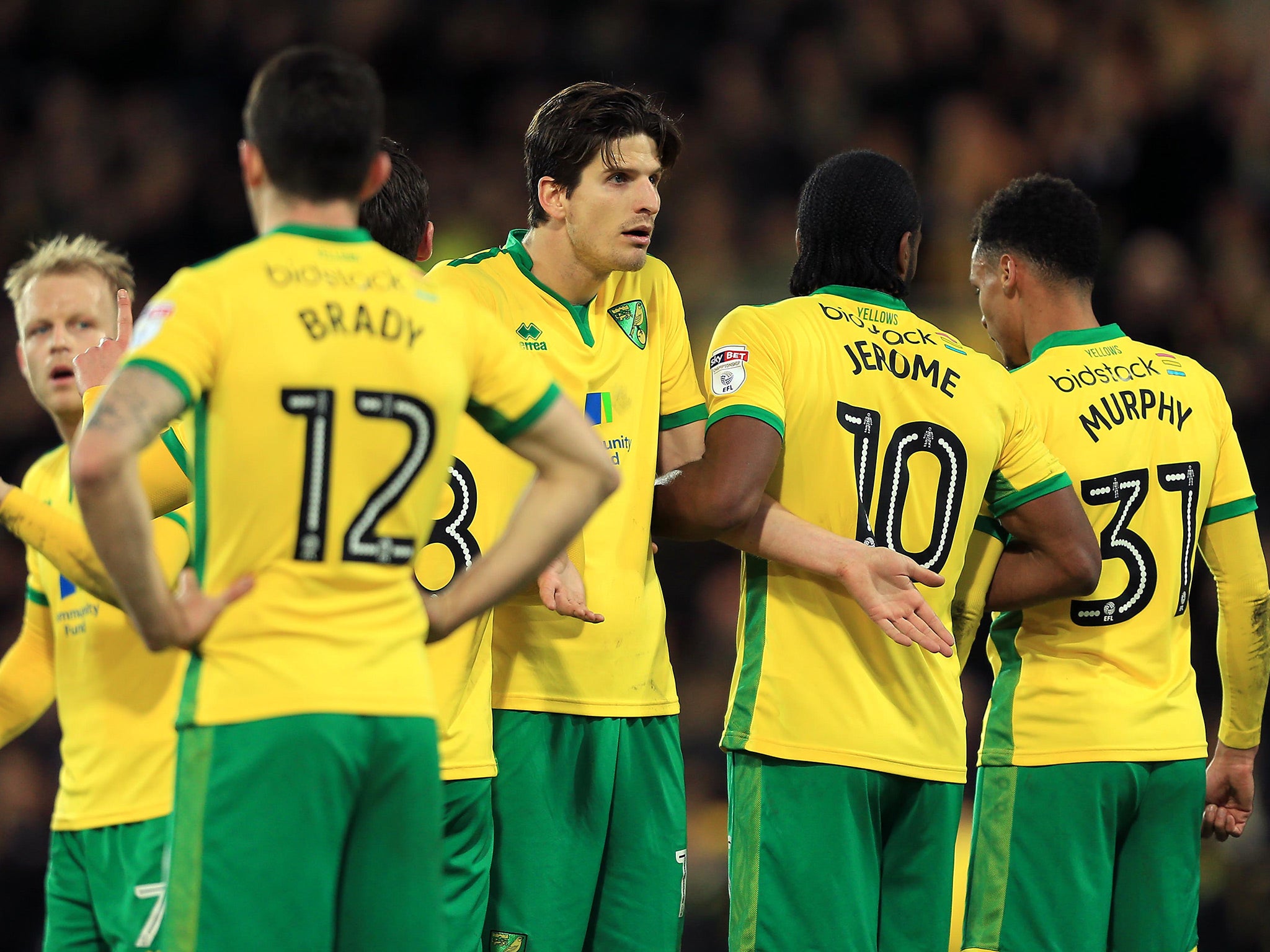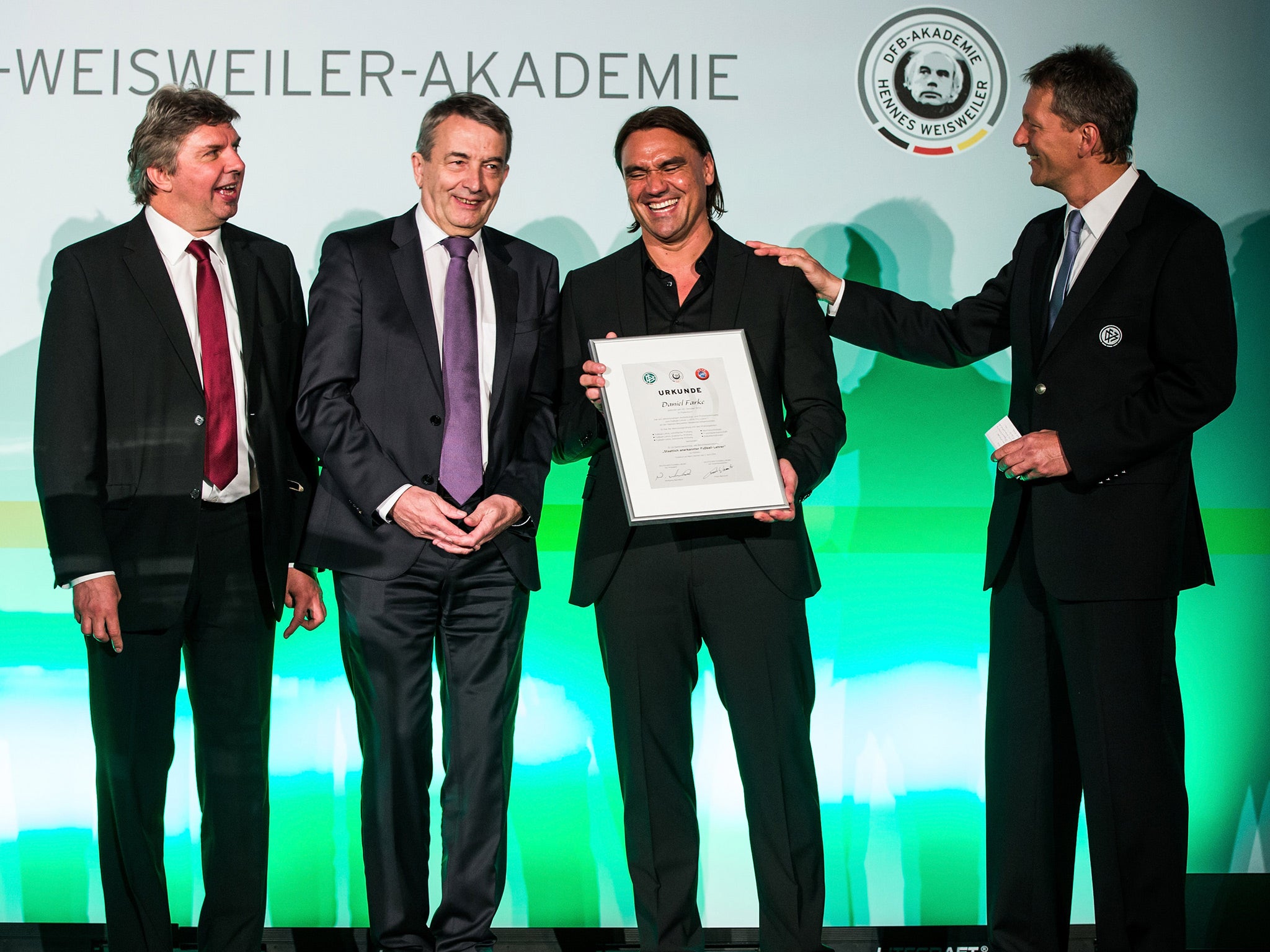Norwich City's new boss Daniel Farke on Dortmund, David Wagner and the value in being a workaholic
Exclusive: The new man at the Carrow Road helm tells The Independent how he plans to the take the club back to the Premier League

Your support helps us to tell the story
From reproductive rights to climate change to Big Tech, The Independent is on the ground when the story is developing. Whether it's investigating the financials of Elon Musk's pro-Trump PAC or producing our latest documentary, 'The A Word', which shines a light on the American women fighting for reproductive rights, we know how important it is to parse out the facts from the messaging.
At such a critical moment in US history, we need reporters on the ground. Your donation allows us to keep sending journalists to speak to both sides of the story.
The Independent is trusted by Americans across the entire political spectrum. And unlike many other quality news outlets, we choose not to lock Americans out of our reporting and analysis with paywalls. We believe quality journalism should be available to everyone, paid for by those who can afford it.
Your support makes all the difference.Daniel Farke is discussing his policy on ‘player feedback’. “My door is open 24 hours,” the new Norwich City manager says. “We can discuss things – I don’t think I'm a magician or the only guy who knows anything about football. I said to the players in the first meeting: 'When you think you have other ideas, or you think I am wrong, come into my room, we will talk about everything... and in the end we will realise I'm always right.”
Well, if it worked for Brian Clough. Farke lets out a hearty laugh: despite a spot of hayfever - a hazard of moving to semi-rural Norfolk - he’s in a good mood. The 40-year-old German was appointed as the Canaries boss in May, following two successful years in charge of Borussia Dortmund’s reserve team, becoming the club's first manager from outside the UK and Ireland. On the surface it seemed like a leftfield choice for Norwich, but perhaps not when you consider the man who recruited him. Last season Stuart Webber, Norwich's sporting director, moved to the club from Huddersfield: it made some sense to try a similar route after doing very nicely with Farke's predecessor at Dortmund, David Wagner.
And the good news for Norwich fans is that Farke is rated by some in Germany as a better coach than Wagner. He'll need to be: he takes charge of a Norwich side undergoing plenty of changes, competing in a crowded Championship and operating under the pressure that the advantage of parachute payments is disappearing. It's not quite now or never, but promotion is certainly highly desirable at Carrow Road this season.
If nothing else, one of Farke's jobs is to pick Norwich up after a curious season, in which they started among the favourites for promotion but collapsed under Alex Neil. After the Scot was dismissed in March, they muddled through until the end of the season under Alan Irvine, ultimately finishing a disappointing ten points shy of the playoffs. Farke needs to get his ideas across quickly, to make sure the players know how he wants his teams to play. So how does he want his teams to play

“It's difficult to describe in one sentence,” he says. “To be honest I don't like to speak so much about the philosophy and ideas. I'd like the supporters to watch our games and see what our ideas are. The truth is on the pitch.” Then, after a brief pause, glancing at the dictaphone on the desk and knowing a more expansive explanation would be gratefully received, he continues.
“If you want a short answer, it's about being dominant. I want our players to be protagonists on the pitch. I don't like my teams just to be compact and to react, I like to act. I like to have the ball – if I could choose I would have the ball for 90 minutes. I want to create chances and dominate games.
“To be successful you have to find a good balance between offence and defence, to work without the ball, but our main tactic is to work with the ball, to be in possession. There are other successful, attractive philosophies, but I think you have to decide how you play – you can't be 'a little bit from here, a little bit from there.' It's important to have a concrete style, and when you watch our games you have to know what our style is.”
For someone who doesn't like talking about his ideas, that's a pretty good answer. “I said to the players on the first day,” he continues, “the most important point is to be open-minded, perhaps for a new working style or something. I explained I don't feel I invented football and I'm a magician or something like that. It's only football, let's win the game, hopefully score some goals and not concede so many. It's not witchcraft.”
Farke speaks with the enthusiasm of the workaholic, which is seemingly exactly what he is: reading about and talking to people who have worked with him, it's a common description. “When you fulfil your dreams you don't count the hours of working,” he says. “You just enjoy what you're doing. I love to work in football, so for me it's not work. I'm not here first in the morning and last in the evening because I think I have to prove I'm busy or working hard. When you want to do something extraordinary you have to be like a freak and to be something like a workaholic.”
If I could choose I would have the ball for 90 minutes. I want to create chances and dominate games
Another feature of Farke's style is that his teams are flexible. Formation changes during games are common, something he's already done in the pre-season games so far at Norwich. “It's important to be flexible,” he says. “Sometimes it depends on the strengths of the opponents. We will always have the same principles, but to have a plan B, a plan C, a plan D is very important. We have to make sure that we can switch and the players know what to do. There's no book about football that says: 'This is right and this is wrong'. It's important to be open-minded so I can be the best coach for the club. If the players don't follow my lead it's not possible to be successful. It's always up to the players.”
But still, he must be doing something right in order to persuade those players that his way is best, to ensure they do as they're told. And that's down to his man-management, which from the sound of things is quite involved, and relies more on the arm round the shoulder than a boot up the rear. “The times are over when a coach could work with fear, to try and damage guys, and they would run from the coach because they're scared,” he says.

Still, it's not just cuddles and affirmations. “I have a pretty close relationship with my players, but on the other hand we're not friends, they're not my buddies sitting together every evening with a bottle of beer and a barbecue. I said the players can discuss things, but also there's a time for a monologue, for when one person needs to speak in a dressing room. And that's not a player.”
The impression you get after spending some time with Farke is that he's a man with an easy authority, someone who doesn't have to shout to make you listen. In theory, combined with his ideas on the game, he should thus be a success, although like Mike Tyson's old warning that 'everyone has a plan until they get punched in the mouth', theories mean little in the Championship. But more than that he seems to be a man who understands football. Not just in the way of figuring out how to beat an opponent and the best way to motivate his players, but what it means in a broader sense to everyone, what the point of it all is.
“Football is a business, it's work, but you also need to make people happy. It's not only being professional and being disciplined and concentrated, but it's about fun and enjoying what you do. It's important to have an atmosphere like that at the club.”
Join our commenting forum
Join thought-provoking conversations, follow other Independent readers and see their replies
Comments